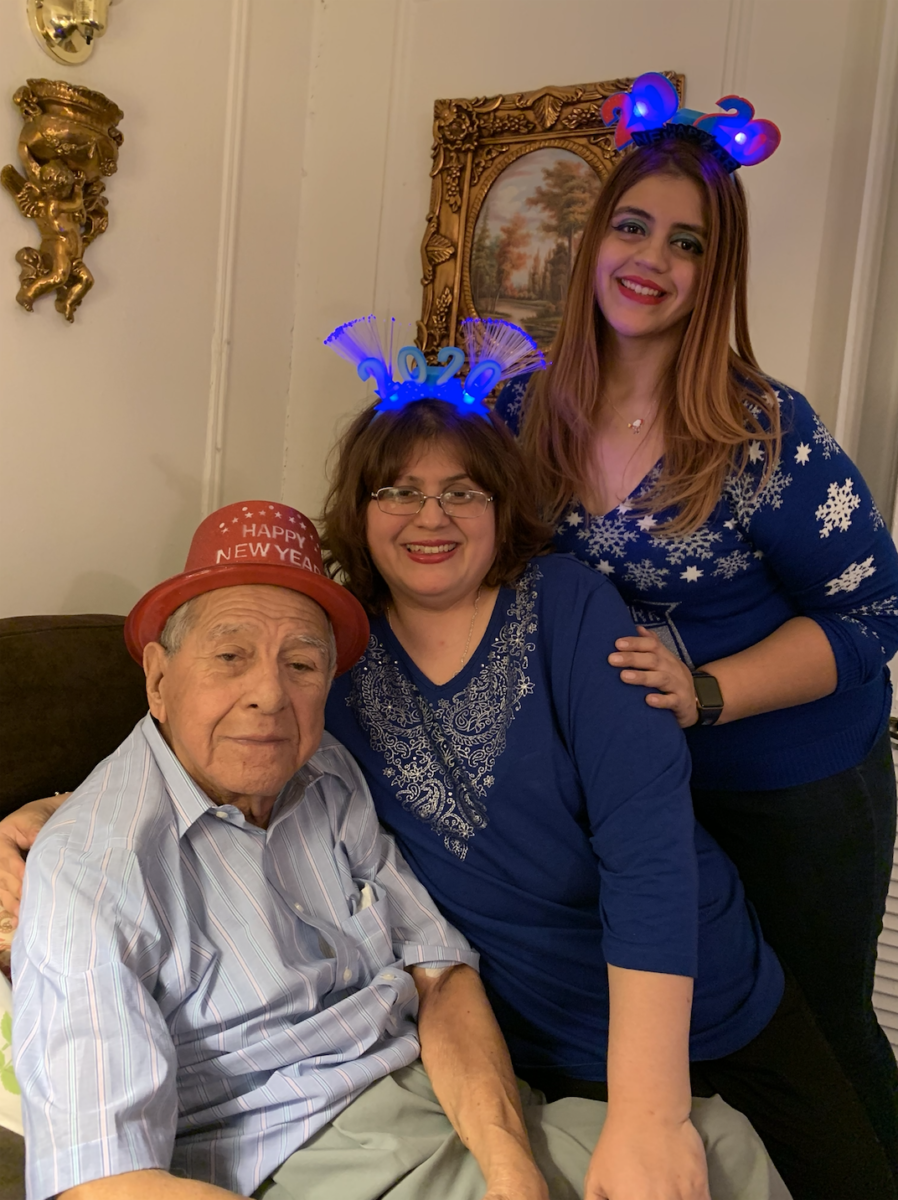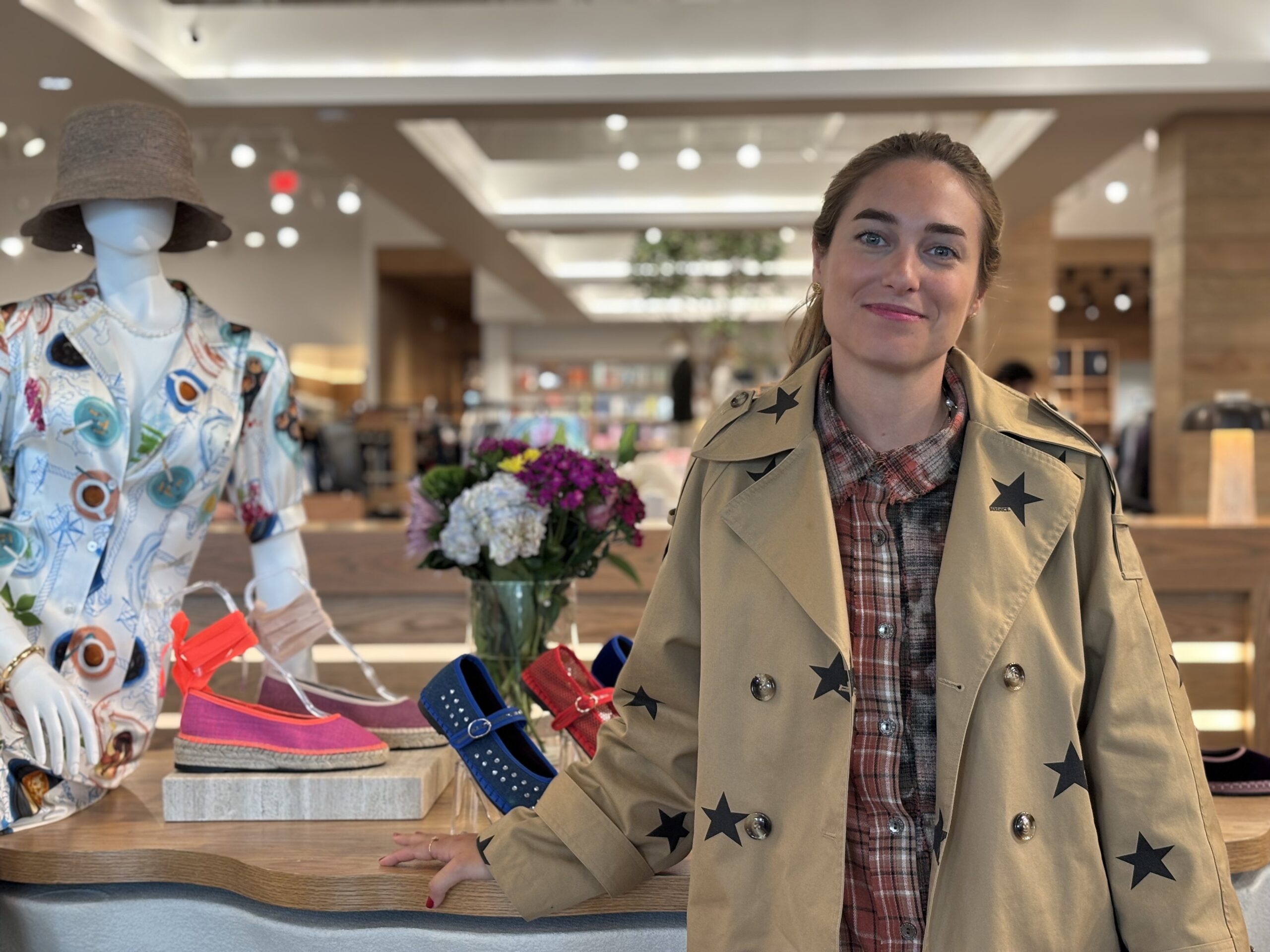By Miryam Pinto
While many Americans gather together on Christmas Eve, watching classic holiday movies like “Home Alone” or set out cookies for Santa Claus; Latinx households prepare for the mother of all holidays: Nochebuena. Nochebuena, which translates to “holy night,” is one of the Latinx culture’s most important holidays. Families put on their best outfits and gather together for a big festive dinner to later exchange gifts at midnight. Most importantly, el Niño Jesus is placed in the nativity to celebrate his birth.
Nochebuena varies in different Latinx households since each country has its customs and traditions. In a Puerto Rican or Cuban home, you often see family serving pernil (pork), rice and beans, pasteles, and fried tostones with a delicious garlic sauce on the side. You would probably have pavo relleno (stuffed turkey), houjelas, or a dulce de Noche Buena in a Colombian household. Coming from an Ecuadorian family, we always had an abundance of food such as tamales, hallacas, jamón ahumado, and rompope (Ecuadorian eggnog) for the adults. There were years we spent Nochebuena at my aunt’s house with extended family in New Jersey. Still, I always loved to spend Nochebuena at my grandparent’s house, even if it was just the five of us.
This year, there will be no Nochebuena in my house.
2020 has been quite a challenging year for everyone, but it impacted my family immensely. In late March, I lost my mother to COVID-19 and other health complications. My world completely fell apart the day I lost her, and I knew then that life would not be the same. To our misfortune, my grandfather passed away three months later from heart complications. Or, as the cardiologist told us, a “broken heart” due to the emotional impact of losing his only daughter. The family dynamic flipped upside down as our family mourned the loss of two crucial family figures. This year, I celebrated a motherless Mother’s Day, a grandfather-less Father’s Day, and even turned 27 without the person who gave birth to me by my side. However, I knew Nochebuena would be the holiday that would be the hardest for me.

Out of respect for my mother and grandfather, our Christmas tree is not up. We won’t be exchanging gifts at midnight or having a big, festive dinner. “Va ser como cualquier dia” (It’s going to be like any other day) is what my grandmother has said since November. As the family’s elder, I respected her decision, and I completely understood and validated her feelings toward this. It is not easy celebrating a festive holiday with two empty seats at our table. Even if we were to celebrate it, we still couldn’t. With the COVID-19 pandemic, we wouldn’t be able to travel to New Jersey to spend it with my aunt and the rest of the extended family, especially with cases spiking once again. It would be a considerable risk, and we already suffered enough losses this year. This year will be a Nochebuena de luto y tristeza, a Christmas Eve in mourning and sadness.
Every Nochebuena, we dined, laughed and danced to merengue Navideños. My grandfather would sit at the end of the table with my grandmother on the other end, retelling stories I always found humorous. Once midnight came, he would give a Christmas toast, and soon after, we would head over to the living room to open gifts. As the youngest child, I was responsible for putting el Niño Jesus in the nativity, handing out the gifts to everyone, until finally, I could open my own.
Nochebuena was my mother’s and grandfather’s favorite holiday. My grandfather, or “Papito,” as I used to call him, loved having the family gathered around him. He would talk for hours and hours even though we heard the same stories every year; we still enjoyed listening to them. He loved having us together. My mother, on the other hand, was the ultimate gift giver. She always went out of her way for everyone in the family and gifted them what they needed or wanted. She took more joy in giving than receiving gifts. She made sure every gift was unique and always put thought into each of them. Reflecting on past holidays spent together, there’s not one Nochebuena/Christmas that I can say we didn’t have an abundance of gifts, food and laughter.

As I am aware that it is too soon to celebrate anything in our household, I couldn’t help but wonder what future Nochebuenas would look like. Putting Christmas decorations and playing holiday music can be considered disrespectful to those who’ve passed away. Which ultimately left me conflicted. I had discussed this matter with my therapist to get an unbiased perspective. In the end, he asked me, “What would your mother and grandfather want you to do?” I didn’t know the answer, but I learned that they would want us to be happy and not feel miserable. Most importantly, I didn’t want our family traditions to die out.
After much thought, I realized the best way to honor them in every Nochebuena is to keep their memories and presence alive. Perhaps retelling the stories my grandfather would say or play my mom’s favorite merengue Navidenos before midnight would be a great way to acknowledge them. Even sharing stories from past Nochebuenas that we spent together seemed like an ideal way to keep their memories alive.
Something I have taken into consideration is continuing the traditions my mom and grandfather started. While we are mourning their absence on Earth, we should also celebrate the memories we created with them. Eating my grandmother’s flan with cafecito after the gift exchange, a tradition my grandfather started. And taking the Nochebuena pictures with our dogs, as my mom always accustomed to doing, is something I should not let die out.
The best way to honor our loved ones would also be making a plate of food for them on Nochebuena, a custom that is common to honor loved ones who have passed. Though my mother and grandfather are not physically with us, I know they are with us and will be with us for many Nochebuenas to come. Keeping their memories, traditions, and customs alive is the best way to honor them every holiday season.
Want to read more stories like this? Give us your feedback here!
Latinitas Magazine is a department within Latinitas, a registered nonprofit. Readers like you fund us, so please consider donating today. Thank you!











